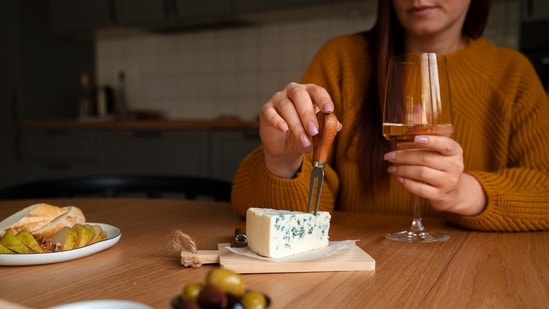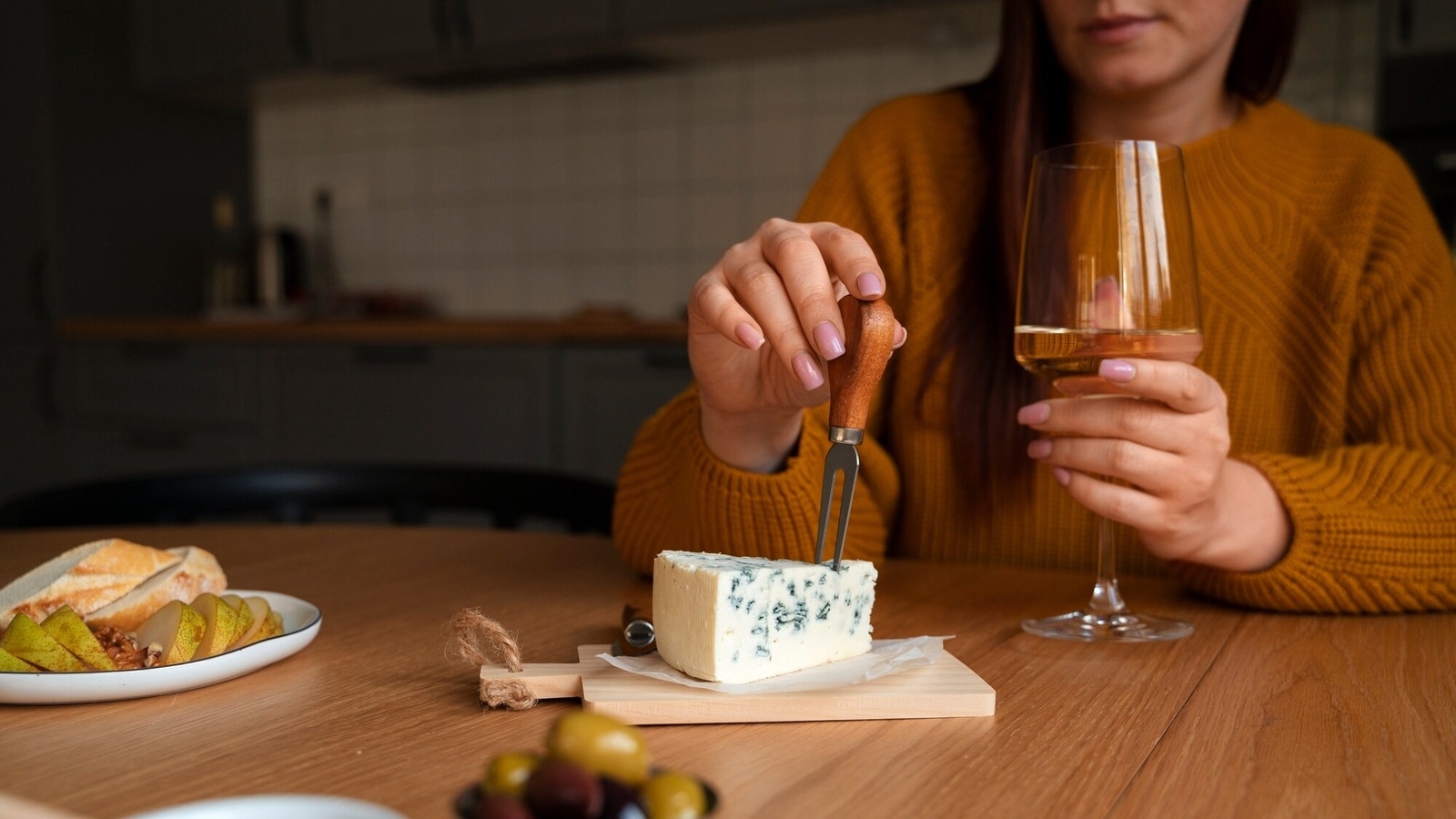According to US-based fitness coach Dan Go, the French seem to have cracked the code to maintaining a healthy weight, despite enjoying foods like bread, cheese, and pastries. In an Instagram post on September 5, Dan shared nine reasons why French people tend to stay slim. Also read | Nutritionist shares 5 Japanese habits Indians can adopt for long and healthy life: ‘Their meals include small portions’
 Dan Go said French people eat bread, cheese, wine, and pastries, yet they have one of the lowest obesity rates in the Western world. (Representative picture: Freepik)
Dan Go said French people eat bread, cheese, wine, and pastries, yet they have one of the lowest obesity rates in the Western world. (Representative picture: Freepik)
In his post, Dan said, “French people eat bread, cheese, wine, and pastries. Despite this, they have one of the lowest obesity rates in the Western world. Here are nine reasons why French people are staying slim while everyone else is getting fat.” According to him, 9.4 percent of French people are obese compared to 30.6 percent in the US.
By adopting some of these habits shard by Dan, you can potentially improve your own relationship with food and reduce your risk of obesity:
1. Cultural portion control
Dan said, “In France, ‘small’ is normal. Coffee cups are tiny, sandwiches aren’t a footlong, and meals aren’t supersised. Smaller portions mean fewer calories without feeling deprived.”
2. Structured meal times
“The French eat 3 proper meals a day: breakfast, lunch, and dinner. Snacking is rare and discouraged. Eating at this rhythm stabilises appetite and prevents constant grazing,” he added.
3. They eat slowly
Dan said, “French people tend to enjoy meals. They treat food as an event to be shared with others. People sit, talk, and savour food, and don’t treat meals as an eating contest. This helps them slow down brain time to register fullness, preventing overeating.”
4. Quality over quantity
“Food culture is rooted in taste and freshness. Farmers’ markets overflow with produce, bread, and cheese. When food is full of flavour and nutrients, you don’t need giant portions. High quality reduces cravings and leads to natural moderation,” Dan said.
5. No food restrictions
He added, “Bread, butter, wine, pastries — none of these are labelled ‘bad’ or cut out. Instead, they’re enjoyed in small amounts. This guilt-free approach prevents the binge-restrict cycle seen in many diets, where foods are forbidden and later consumed in excess.”
6. Minimal liquid calories
Dan said, “Wine is usually enjoyed at meals, but soda and sugar-heavy drinks are uncommon. By avoiding high-calorie drinks, the French avoid one of the biggest drivers of obesity.”
7. Built-in daily movement
“French cities are walkable. People shop at local markets, run errands on foot, and rely on public transport. Movement isn’t treated as ‘exercise’, it’s part of daily life. This constant low-level activity keeps energy balance in check naturally,” Dan said.
8. It’s not in their culture
“Overeating is usually frowned upon in France. These social pressures shape habits just as much as personal discipline. Being moderate, slim, and balanced is part of the culture, which nudges behaviour in a healthier direction,” he added.
9. Their government supports health
Dan said, “France regulates school meals, restricts junk food ads, and runs campaigns like ‘Manger Bouger’ (Eat, Move)’. Unlike nations dominated by corporate interests, public policy actively promotes healthier defaults that protect the population long-term.”
Everything Americans ‘do wrong’
Dan further compared the eating habits and lifestyle differences between people in the US and France, and wrote in his caption, “The French eat bread, cheese, wine, and pastries daily. Yet they’re skinnier than us. It’s not genetics. It’s not metabolism. It’s everything we do wrong. They sit at tables. We eat in cars. They savour meals. We inhale food. They walk to markets. We drive to drive-thrus. They stop at satisfaction. We eat until stuffed. A croissant in Paris hits differently than a muffin at your desk. Not because it’s French. Because it’s enjoyed, not devoured.”
He added, “They don’t count calories. They count conversations. They don’t fear carbs. They fear eating alone. They don’t do intermittent fasting. They do intermittent living. Every meal is an event. Every bite is intentional. Every glass of wine has a purpose. Meanwhile, we’re eating protein bars in traffic, wondering why we’re gaining weight. The French paradox isn’t about what they eat. It’s about how they live. Food isn’t the enemy. Our relationship with it is.”
Note to readers: This report is based on user-generated content from social media. HT.com has not independently verified the claims and does not endorse them.
This article is for informational purposes only and not a substitute for professional medical advice.

